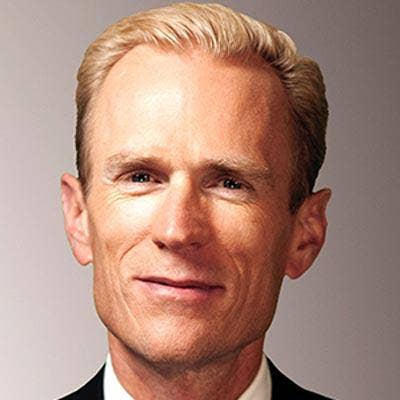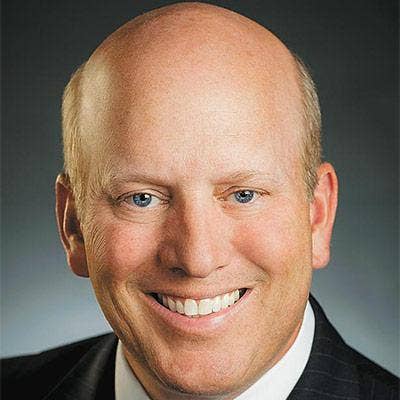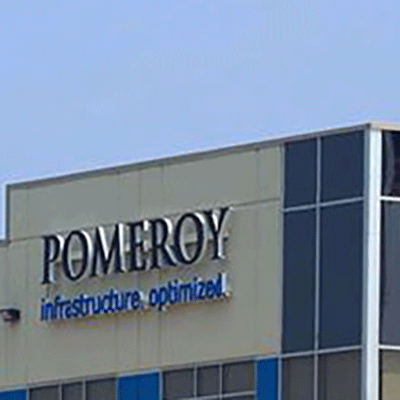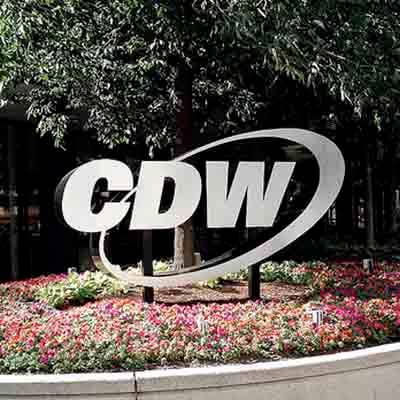New Pomeroy CEO Robinson On Learning The IT Space, M&A Opportunities, Tolt Merger, And Competing With CDW And Insight

Under New Management
Managed services giant Pomeroy stepped into a new era Thursday, promoting CFO Brian Robinson to succeed eight-year CEO Chris Froman.
As Froman transitions to his new role as executive chairman of the board of directors, Robinson will look to lead Pomeroy further down a strategic path laid out by his predecessor -- one highlighted by its massive 2015 merger with Tolt Solutions. The deal created a 4,000-employee, $1 billion channel heavyweight that has pushed the Hebron, Ky.-based solution provider up to No. 41 on the 2017 CRN Solution Provider 500.
Robinson, first hired in August 2016, has spent the past year at Pomeroy getting a crash course in the nuances and quirks of the IT space. What the 10-year CFO lacks in industry-specific experience, he believes he'll more than make up for through veteran leadership, quick learning and careful consideration of employee insight.
"It's a lot of those things that really cut across the industry that are my strong suit," said Robinson, who worked at wiring manufacturer General Cable for nearly two decades before joining Pomeroy.
Robinson sat down with CRN to discuss his preparation for the new role and where he sees the most potential for future growth at Pomeroy.

Why was the timing right for this leadership change?
The timing works well because I've now been here a year. I've been able to learn the IT space better. I'm not an expert, but I've learned a lot, and there's a great team here at Pomeroy who are experts. I have a great passion for finance and accounting, but I also have a great passion for organizations. When I find purpose and care about something as I do Pomeroy, it really made a lot of sense the more things progressed here. We're at an important point in terms of executing our strategy and growing our managed services business. It's hard work, but it's fun work. All those factored into the business decision behind the transition.

You were at General Cable for 17 years. The IT industry is a different beast. Why are you prepared for this role, and what sort of perspective do you bring to it?
Some of the products we made at General Cable certainly touched the IT space, but it ends there. I have ... experience in several areas of the business, from end market to customers, vendors, competitors and boards of directors. It's more the attributes that will suit me well in this role, including being a fast learner, and being someone who believes the best ideas for growing a company come from the employees – from the people who do the work and sit in front of customers and vendors. Most people want to come to work and have purpose. They want to make the company better or the customer's life better.

Was this promotion discussed as an eventual possibility when you joined in August?
It was part of the discussion around joining. Of course, I needed to prove myself and get a handle on these things. That maybe fits into the category of planned, when the time was right.

Is it reassuring to have Chris Froman (pictured) stay on as executive chairman of the board?
It is from many perspectives. I draw a lot of energy and views from people who know things better than I do, or have greater experience. In this case, people who are close to the customer and vendors. Chris is all of that and then adds a level of experience and wisdom that I can draw from. It's great to have him as executive chairman and know that I can count on him, whether it's strategy-driven, relationship-driven or as a sounding board to bounce things off. It's a huge benefit to me.

What's your perception of the IT industry now that you've been immersed in it for a year?
The world changes for everybody, every hour faster than it ever has. Then apply that to IT. It's sort of like the business world on steroids. Big-time changes come every, every day. Clearly, relationships matter. That's not just the case in IT, but it's profound in the IT space whether it's with a customer – if it's an intimate relationship with a customer you know, you need to be a step ahead of them in terms of serving their needs – or it also goes back to OEMs and distribution. Those are critically important.

How do you apply that to Pomeroy?
We have to always continue to focus on what we do well. One of those things is execution. There's a tendency in IT to chase glamorous sectors and markets. We can't forget to really focus on our core and never lose sight of what we do really well while we're short-throwing into adjacencies.

You said the company was at an important point in executing its strategy. What's your vision when it comes to leading Pomeroy down that path to continued growth?
There's a strategy in place; early steps include the Pomeroy-Tolt merger. My view is we stay on that strategy and continue to focus on those long-term relationships, and the managed and professional services. While continuing to pursue that strategy and focus on growth, the other leg of it is on the execution side. That's very important. It ties into customer satisfaction and customer intimacy. It's important we're helping our clients think about five years ahead. I would not expect a major strategic shift. We're on the right path.

How has the Tolt merger benefited Pomeroy from your perspective?
I came in six months after that deal happened. I found there have been strong attributes of both companies. The journey's been about getting the best of each company as the leading practice in the company, whether it's on the growth or customer service side. That's one of the more fun parts of what I've seen and been involved in is watching the companies come together. Our sales guys have more to offer in terms of a broader customer mix, more tools and the like.

What have been the fastest-growing areas of the combined company? And where do you see the most potential for future growth?
The fastest-growing area has really been that managed services business. There's a lot of opportunity. The sectors where we're strong and I've seen a lot of opportunity are in financial and health care. We have a very strong retail presence. Despite all the headlines and everything happening in retail, there's still a lot of opportunity there. In many of our businesses, there's new technology around cloud, artificial intelligence and the like. We can do those things. But there's also a lot of emphasis on the more traditional services. Clients want high-quality service at the most competitive cost. The greater flexibility and optionality we can offer, and being leading thinkers once we have a relationship established, there's growth that can from both that existing base and – by having that credibility – with new logos.

What are some ways Pomeroy has emphasized or enhanced its 'traditional services?'
We've done a really good job in the last year of having a global, 24/7, follow-the-sun type of offering. We have offshore capabilities in [Philippines capital] Manila, which we've integrated into our global companies. We have some clients who only want local service, but we have other clients who are global and want 24/7, follow-the-sun service. We can do both. We have the flexibility to deal with a customer who is located only in Pittsburgh or a global company based in St. Louis, and service them equally well.

Do you anticipate Pomeroy's growth strategy will feature more M&A?
Yes, I do. Where that is, that's obviously to be determined. … I get so much to work with. I have a great list of clients and employees. I have a lot to do, but I like the hand I'm playing.

How is Pomeroy positioned to compete with other large solution providers, like CDW and Insight?
I believe it ties into my previous thought. We've got a great group of customers with good geographic diversity within the U.S., which is really our core market. We're flexible, we're responsive, and while we're good at these things, we can always be better. That'll help continue to grow even these great relationships we have. We can offer a lot of the newer technologies, artificial intelligence and others. Short answer: We have a broad offering, we're flexible and work very well with customers.